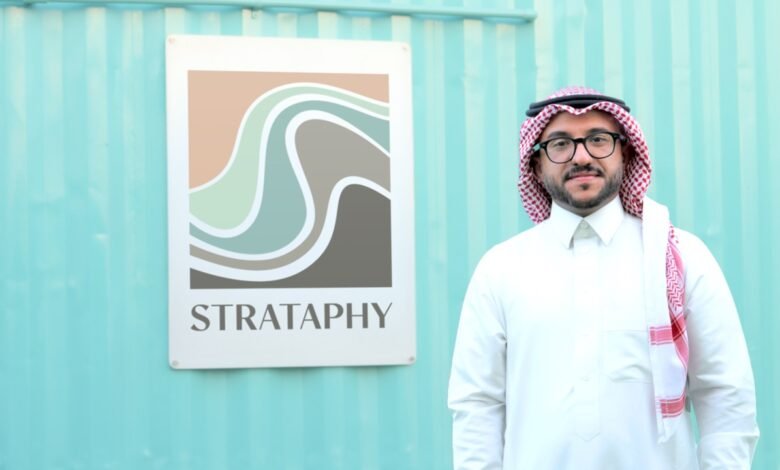
While the tech world obsesses over the scarcity of H100 GPUs and the power demands of training Large Language Models (LLMs), a secondary crisis has been brewing in the background: thermal management. We are building massive supercomputers in some of the hottest places on Earth, and keeping them from melting down is becoming prohibitively expensive.
Strataphy, a Saudi-based deep-tech startup, thinks the solution isn’t bigger air conditioners—it’s the ground beneath our feet.
The company has raised $6 million in seed funding to scale its “subsurface cooling” technology. The round was led by Outliers VC, with backing from Shorooq and PlusVC. The funding is a signal that investors are beginning to look beyond the AI chips themselves and towards the physical infrastructure required to keep the AI revolution running.
The Physics of the Problem
To understand what Strataphy is doing, you have to look at the inefficiency of modern cooling. In high-temperature regions like the Middle East (MENA), cooling infrastructure already consumes nearly 50% of total electricity use across industrial sectors.
Data centres are essentially giant heaters. When you run electricity through a server, it generates heat. Conventional cooling systems (chillers, HVACs) take that heat and try to push it into the outside air. But when the outside air is 45°C or 50°C, the efficiency of those systems plummets. You are essentially trying to push heat into an already hot environment, which requires massive amounts of energy.
Strataphy’s approach, which they call PrimeLoop™, flips the script. Instead of venting heat into the hot air, they send it underground.
How PrimeLoop Works
The company claims its technology leverages “deep, stable thermal energy.” Even in the Saudi desert, if you dig down deep enough, the ground temperature remains relatively constant and much cooler than the surface air temperature.
Strataphy’s system likely operates on the principles of geo-exchange:
- Fluid absorbs heat from the data centre or industrial facility.
- That hot fluid is pumped through a proprietary loop deep underground.
- The surrounding earth acts as a heat sink, absorbing the thermal energy from the fluid.
- The cooled fluid returns to the surface to repeat the cycle.
The company claims this results in electricity cost reductions of up to 49% compared to conventional systems. Perhaps more importantly for grid stability, it significantly lowers the peak power load.
The Founders and the Pivot
This isn’t a couple of software engineers hacking a hardware solution. The startup is led by Dr. Ammar Alali (CEO) and Ahmed Alhani. Both are veterans of Saudi Aramco with 15 years of experience in subsurface exploration and geothermal systems.
Dr. Alali, who holds a PhD in Earth Sciences from MIT, noted a critical shift in the hardware market. “In AI hardware, cooling has quietly outpaced semiconductors, servers, and even data centres as the largest driver of net-new hardware spending since 2022,” Alali stated.
The duo engineered PrimeLoop specifically to overcome the limitations of traditional geothermal systems. Historically, geothermal tech has been designed for heating in cold climates (extracting heat from the ground). Strataphy had to re-engineer the concept for heat rejection in hot climates, where the ground needs to absorb heat rather than provide it.
The Business Model: Cooling-as-a-Service
The technology is interesting, but the business model is what likely secured the VC money. Strataphy is deploying a Cooling-as-a-Service (CaaS) model.
Geothermal projects usually require heavy upfront Capital Expenditure (CapEx)—drilling holes in the ground is expensive. By offering it as a service, Strataphy takes on the implementation cost and charges the client an operating cost (OpEx). For data centres and “giga-projects” like NEOM (which is listed as a partner alongside King Abdullah Economic City and ADNOC Drilling), this shifts cooling from a massive construction cost to a predictable monthly utility bill.
The Outlook
The timing is precise. The Middle East is currently one of the world’s fastest-growing cooling markets, valued at over $120 billion annually. As the region attempts to pivot from an oil-based economy to a tech and AI hub, the physical constraints of the desert climate are the primary bottleneck.
Investors Shane Shin (Shorooq) and Mohammed Almeshekah (Outliers VC) are betting that Strataphy isn’t just selling pipes; they are selling the “backbone” of the region’s AI infrastructure. If Strataphy can prove their 49% efficiency claims at scale, they won’t just be cooling servers; they’ll be rewriting the energy equation for the entire region.






